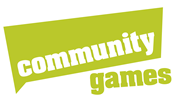Ideas for sports activities and competitions
Sport will probably be one of the main focuses of activity at your Community Games. The main thing is to provide lots of opportunities for people to participate, either in a taster session where they get to try something new, or in a competition.
Taster sessions
Taster sessions are about giving people the opportunity to just have a go at an activity and try something that they haven’t tried before. Experiencing an activity, rather than simply spectating, can be hugely effective in encouraging people to participate on a regular basis.
Community Games provide a great opportunity to involve local sports and activity clubs. It can offer a ‘shop window’ for clubs to help them recruit more members.
Community Games create a positive, fun and can do atmosphere amongst volunteers and participants with 70% of participants in 2013 saying they tried a new sport or activity. And 52% of participants said they were more motivated to do more sport after attending a Community Games, so it is a real opportunity for clubs to attract new members.
Below are some things to consider:
- Conduct some research on what local sports clubs you have – your organisational network will probably have members or links to some of them
- Speak to them and outline the benefits to them of attending
- Think about a mix of traditional and non-traditional sports but the links with local clubs and organisations are important, there would be nothing worse than somebody really enjoying an activity at your Community Games and then finding that there is nowhere within 100 miles for them to continue participating in it!
Top tips:
Begin discussions with local sports clubs by pointing out the fact that Community Games represent a fantastic opportunity for them to attract new members and to promote their sport/club. These clubs will also have the expertise in running the sports competitions so could be a good source of volunteers.
Competition formats
If you decide to have competitions as part of your Community Games, there are a variety of different ways of structuring them. Before deciding which structure/format to adopt, there are factors to consider, including; the sport (also whether individual or team sport), the level of competition, the venue, time available, expected number and the age and level, of participants.
Key questions:
- Do you want to establish a winner at the end of the tournament?
- Do you want as many opportunities to play as possible?
- Which competition format best suits your activity?
- How long is your venue booking?
Your answers to these questions will determine which competition format you will want to consider. The main ones are:
- Straight knockout tournament (e.g. Wimbledon tennis championships)
- Round robin tournament (e.g. Fifa football world cup)
- Double elimination knockout tournament
- Winner stays on
- Team placing in an individual event
These are detailed fully in the online appendix.
Whichever competition format you use, you will need to consider the time that you have available. Build into all competition formats a set ‘game/play time’ and a ‘turnover time’.
The ‘game time’ is how long each activity will take and the ‘turnover time’ is the approximate length of time it takes to change over the participants.
You will also need to consider whether you can allow ‘rest time’. In some competition formats it may be required to allow rest time for a team to recover between games. For example the final will follow immediately after the second semi final in a straight knockout tournament. It may be fair to allow the winning team in the second semi final a few minutes rest before the final.
When your game, turnover and rest times have been agreed, you will need to check that the overall tournament time can be contained within your venue booking time. If not, consider whether every round is necessary or if you could allocate a volunteer to help speed up the turnaround time.
Top tip:
Even with organisation and preparation, it can take at least one minute to change teams over in a 5-a-side tournament… build in more time than you think you will need.
Many of the national sports organisations are very keen to be involved in Community Games and the following pages provide a guide. In addition, some of the sports organisations have provided versions of their rules and these can be accessed in the online appendix.
Rules and officials
Whether your Community Games are for fun, include competitive events or are a mixture of the two, it is important to make arrangements for, and communicate information about, the rules and officials.
Key questions:
- Is it relevant to have a set of rules for each of your activities?
- Have you decided on the rules for your competition/event?
- Have you communicated the rules to the officials and participants?
- Have you decided on how to separate teams that are tied?
- Do you have copies of the rules ready for participants to read on the day?
Officials
You will need well briefed officials to run your sporting activities, including setting up on the day and explaining to participants how to take part. Officials will also need to be made aware of the suitability of the activity for people of different ages and abilities, so as to prevent any potential accidents.
If relevant, the officials will need to be provided with the rules, competition format, tournament structure and documentation, before the day of your event – ideally a week before so they have time to digest the information.
Top tip:
Arrange a pre-Community Games meeting for all your officials. This will help them understand the requirements for the event and familiarise themselves with the venue and the tournament. This will save you considerable time on the day of your event.
Results
You should make a note of the results of any sporting competitions you run during the day. You may want to announce these results in your closing ceremony, if you’re having one, or just display them in a prominent place at the event. You may also want to keep a record of these results for the future, particularly if you think that your Community Games may become an annual activity – that way, you can create a ‘wall of fame’ of the winners of different sporting competitions which you can refer to in future years.










